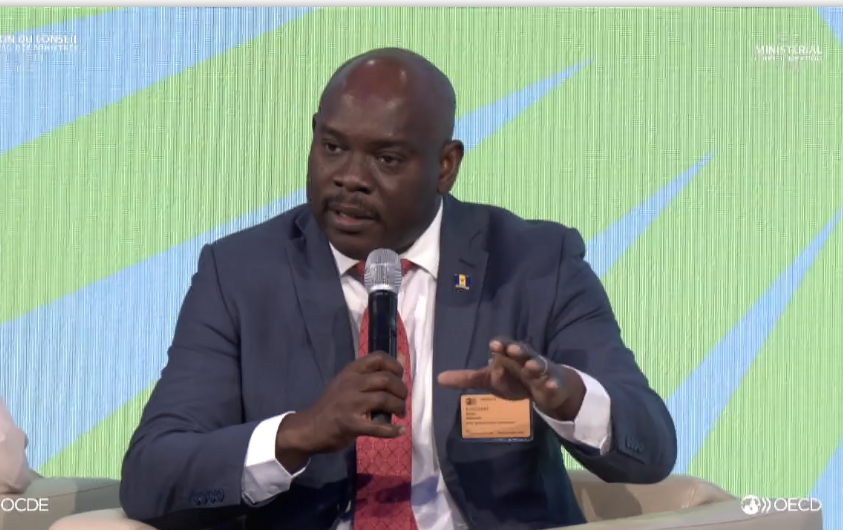Barbados Calls for Technological Access and International Support to Build Climate Resilience

May 3, 2024
Barbados emphasizes the need for dedicated technological access to enhance resilience against extreme weather and natural hazards at a global climate crisis forum. Calls for financial system reform and international cooperation.
Barbados has told a global forum on the climate crisis it needs dedicated technological access to build resilience against ongoing extreme weather and natural hazards.
Speaking at a ministerial dialogue of the Organisation for Economic Cooperation and Development (OECD), the Paris-based grouping of the world’s richest nations, Minister in the Ministry of Finance, Economic Affairs and Investment Ryan Straughn also called for urgent and decisive reform of the global financial system and international cooperation in the climate fight.
The theme of the dialogue was Optimising global climate action through data, policy advice and increased international cooperation: the role of the Inclusive Forum on Carbon Mitigation Approaches (IFCMA).
Straughn told the gathering that priority must be given to the vulnerability of small developing countries such as Barbados when trying to address stability.
To drive home his point, he explained some of the major challenges Barbados has had to tackle over the past two to three years, even with limited fiscal elbow room to do so, and how decisions taken internationally have a direct impact on outcomes in the island.
The minister recalled that in 2019 before the start of the COVID-19 pandemic, Barbados spent $128 million on fuel imports, and in 2020 at the height of the pandemic, economic activity declined by about 20 per cent because of the slowdown across the globe.
“So, we had to respond to save lives and livelihoods in relation to that in 2020,” he said. “In 2021, the volcano in St Vincent erupted. Ash fell on Barbados…that’s April of 2021. Three months later, in July, we had a hurricane, and that was still in the midst of the COVID pandemic. Therefore, the capacity of small states to be able to respond to these poly-crises is critically important.
“So, you must appreciate that globally, we must be able to mobilise resources to be able to respond to these unique challenges. In 2022, the war started in Ukraine; and the reason I told you how much we imported in 2019 is because for the duration of 2021, we spent $1.1 billion importing fuel.
“Now, in 2023, it has come down slightly to just north of a billion, but it’s still a significant drain with respect to our ability to be able to sustain economic growth and be resilient,” Straughn added.
He also told the forum that from January to April last year, Barbados had only 50 per cent of the average 30-year rainfall level. This forced the country to introduce four months of water restrictions between May and August, because “we have no settled rivers, everything is 100 per cent rainfall”.
He also pointed to the impact of extreme heat later in the year: “In September, we had significant heat…. We are self-sufficient in chicken, but we had about 10 per cent deaths within the poultry industry, because of the heat.”
Straughn added: “Everything is cascading, and therefore we have to make sure that we work collaboratively to ensure that small states can have the capacity and access, not just to the financing, but the resources to be able to do this.”


